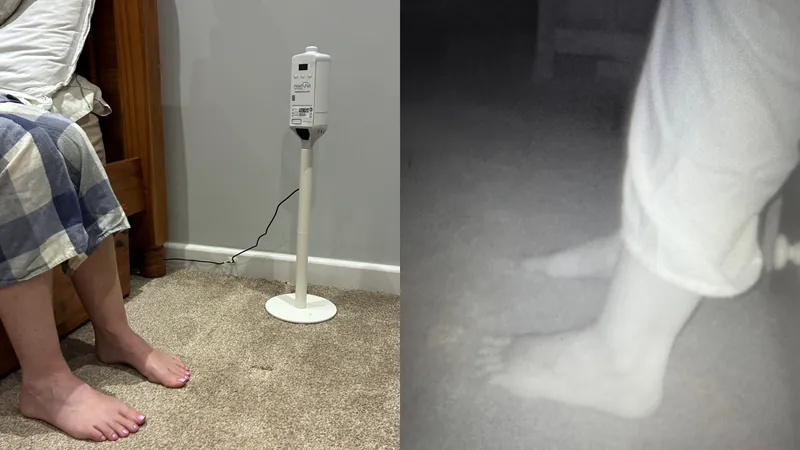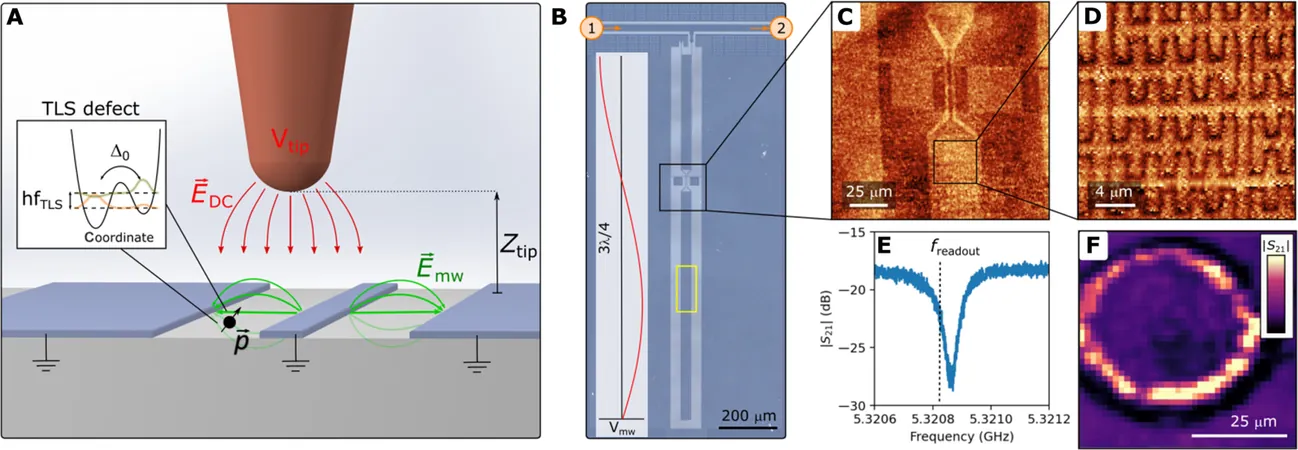
Revolutionary AI Foot Scanner Could Be the Key to Preventing Heart Failure Hospitalizations!
2025-06-04
Author: Mei
Breakthrough Technology in Heart Health Monitoring
A groundbreaking foot scanner powered by artificial intelligence (AI) has emerged as a game-changer in the fight against heart failure. Researchers claim that this innovative device could be used at home to keep individuals out of hospitals.
How It Works: Scanning Your Way to a Healthier Heart
This state-of-the-art scanner operates similarly to facial recognition technology, capturing nearly 2,000 images per minute to assess fluid levels in the feet and ankles. This water retention, known as oedema, is one of the three critical warning signs that heart failure is escalating and could become life-threatening.
Compact and Convenient: The Future of Heart Failure Monitoring
Roughly the size of a smart speaker, the AI-powered scanner can be wall-mounted and is typically installed right next to the patient's bed. It autonomously photographs the lower legs 1,800 times a minute from various angles, without the need for Wi-Fi. Its ability to operate independently makes it an ideal solution for home monitoring.
Early Alerts: A Lifesaver in Disguise
Presenting findings at the British Cardiovascular Society Annual Conference in Manchester, researchers revealed that alerts from this AI device could come as much as 13 days before a patient would otherwise end up in the hospital. The Foot Study monitored 26 heart failure patients across five NHS trusts from 2020 to 2022, highlighting the device's effectiveness.
Proven Results: Detecting Deteriorating Conditions
During the study, there were seven incidents of worsening heart failure detected across six patients, with one recorded death from the condition. Patients participating in the study typically received alerts an average of 13 days before needing hospitalization, providing a crucial window for medical intervention.
The Advantage of Automated Monitoring
Previous monitoring methods, like weighing patients with Bluetooth-enabled scales, were less effective, failing to predict any heart failure-related admissions. Researchers believe that the simplicity of this AI device—requiring no active participation from the patients—gives it a significant edge.
A Virtual Nurse on Your Wall
Dr. Philip Keeling, a senior author of the study and consultant cardiologist, emphasized the challenges faced by heart failure care. With a scarcity of specialized nurses, this AI scanner could function as a virtual caretaker, continuously monitoring patients' health without needing direct human intervention.
Understanding Heart Failure: A Growing Concern
Heart failure affects around 920,000 people in the UK, where the heart struggles to pump blood effectively due to weakness or stiffness. The primary symptoms indicating worsening conditions include increased breathlessness, noticeable weight gain, and swelling in the legs or ankles.
Optimistic Outlook: The Future of Heart Health
Professor Bryan Williams, Chief Scientific Officer at the British Heart Foundation, remarked on the study's promising results, noting that such a straightforward device could significantly enhance outcomes for patients at risk of heart failure by preventing unnecessary hospitalizations. This research exemplifies how cutting-edge technology can facilitate early interventions and improve patient care right from the comfort of home.



 Brasil (PT)
Brasil (PT)
 Canada (EN)
Canada (EN)
 Chile (ES)
Chile (ES)
 Česko (CS)
Česko (CS)
 대한민국 (KO)
대한민국 (KO)
 España (ES)
España (ES)
 France (FR)
France (FR)
 Hong Kong (EN)
Hong Kong (EN)
 Italia (IT)
Italia (IT)
 日本 (JA)
日本 (JA)
 Magyarország (HU)
Magyarország (HU)
 Norge (NO)
Norge (NO)
 Polska (PL)
Polska (PL)
 Schweiz (DE)
Schweiz (DE)
 Singapore (EN)
Singapore (EN)
 Sverige (SV)
Sverige (SV)
 Suomi (FI)
Suomi (FI)
 Türkiye (TR)
Türkiye (TR)
 الإمارات العربية المتحدة (AR)
الإمارات العربية المتحدة (AR)